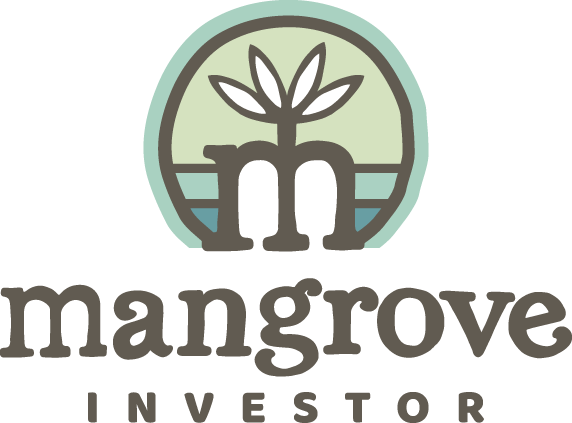

The World Is About to Wake Up to Sustainable Investing
Europe is on fire.
Despite being one of the regions doing the most to combat its climate impact, it’s facing debilitating weather events as we speak.
The U.S. is on fire, too.
The West Coast is currently in a “megadrought” that’s creating its driest conditions in more than a thousand years.
Meanwhile, politicians all over the world argue about how to fix the problem.
We focus on North America here in Mangrove Investor. But across the globe, entire political parties are springing up to try to fill the gaps that traditional parties ignore.
Yet, there are publicly listed companies doing something about it.
One company that we profiled in our New Energy publication is a major player in the technology making better wind farms. Another makes glass for solar panels. And they make a point to keep their operations as low-impact as possible.
What we wonder is: Why aren’t these companies making headlines?
Why does Yahoo Finance have a top-bar option for cryptocurrencies but not for climate-friendly businesses? Why does financial analysis site Seeking Alpha have no section for sustainable investing at all?
Investment research is meant to show investors how best to deploy their capital for profits in the long run. But the “long run” is a problem if these companies don’t protect their futures. Investing itself is meant to give people the ability to profit on the future of businesses.
In reality, investors have by and large been the ones to do that work. They are the ones who push the businesses they own to make changes to their policies. Most of the time, these companies won’t act until their shareholders force their hands.
And the largest generation of Americans (and the largest cohort of future investors) are about to take on these struggles.
Millennials – aged 26-41 – are just now entering their peak earning years, according to credit union ALEC. And as workers hit their highest earning potential, they will spend more on their futures – that means retirement and other investing. That’s usually between ages 35 and 64, which is 2016-2060 for this generation.
And this group says that they are highly focused on sustainable investing for the future. According to Barron’s:
Last month, Morgan Stanley’s Institute for Sustainable Investing published its fourth Sustainable Signals white paper. … The findings show sustainable investing interest is reaching new levels, even with the economic uncertainty caused by the Covid-19 pandemic. Millennial interest in sustainable investing grew by four points to 99%.
So where does that leave us? What comes next?
Perhaps the question isn’t “why aren’t responsible investing choices in the mainstream.” Perhaps the question is “why not yet?” And the answer is that the change is coming.
As the younger generations wake up to the wealth-building power of the stock market, they will push companies to do better. And we will see these sustainable-minded companies start to make waves.
And while climate change stays top of mind in the news, we should expect this shift to happen that much faster. – Annie Stevenson
Numbers to Know
104.4° Fahrenheit
The temperature in the U.K. on Tuesday — the highest ever recorded in the country. Scientists have linked the heat wave across Europe to climate change. It has killed over 1,100 people in Portugal and Spain. (ABC News)
7,000
Number of solar panels fully installed in Sheboygan, Wis., by the North American branch of German tech firm Merck. The 11-acre solar farm adds 2.25 megawatts to the power grid — enough to power nearly 700 homes. (Yahoo Finance)
What’s New in Sustainable Investing
White House considers emergency declaration to fight climate change
The potential executive action would let President Joe Biden steer federal funding toward clean energy projects. It could also restrict oil drilling and reduce fossil fuel exports. (Bloomberg)
Alaska Airlines, Microsoft and carbon capture firm join forces to develop sustainable fuels
A startup called Twelve has developed a process to convert carbon dioxide into jet fuel. Alaska Airlines and Microsoft announced a partnership with the startup on Thursday. This could be a key step in curbing the aviation industry’s environmental impact. (Marketplace)
Links We Like
- “Cyclon isn’t a running shoe; it’s a running shoe subscription service. […] You run in them, return them and we recycle them.” (On)
- “Honeybush tea is naturally low in sugar, caffeine-free and has several other potential health benefits. [But] as the popularity of honeybush tea grows, wild harvesting is becoming less sustainable.” (Phys.org)
- “How can we make more sustainable choices for our time in the surf? Opting for swimwear brands aware of their environmental impact is a great start.” (Marie Clarie)


